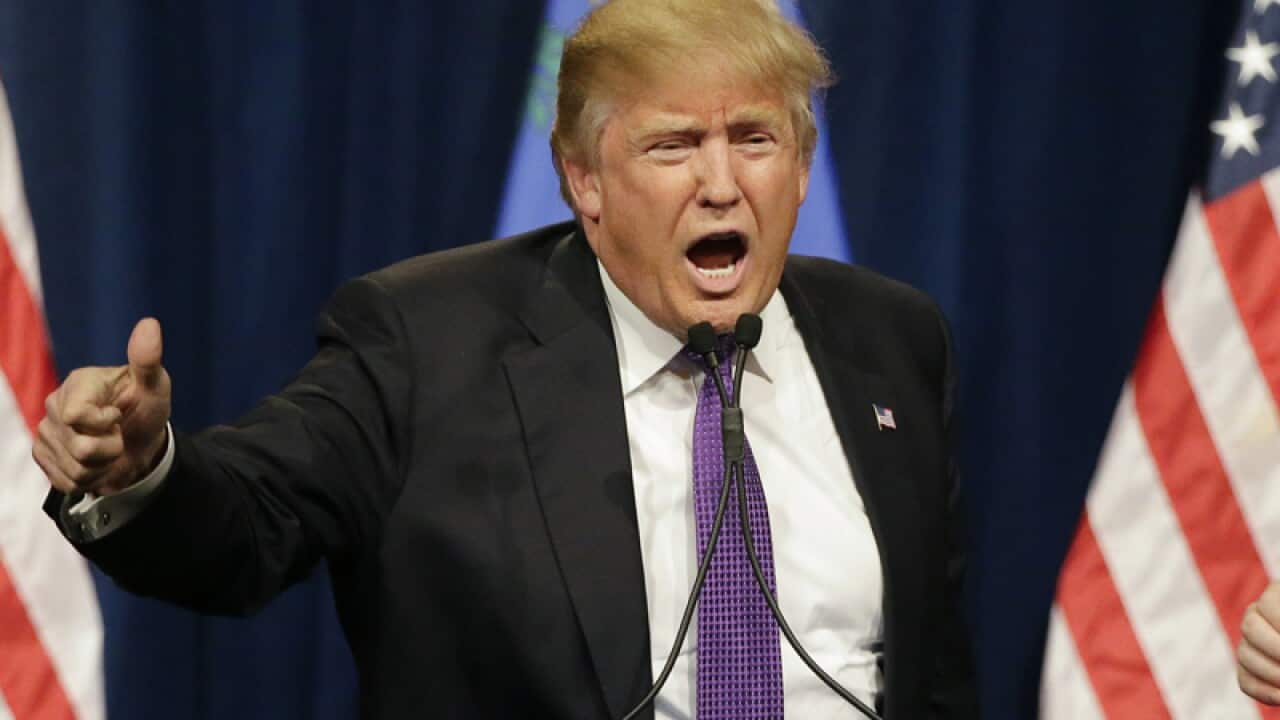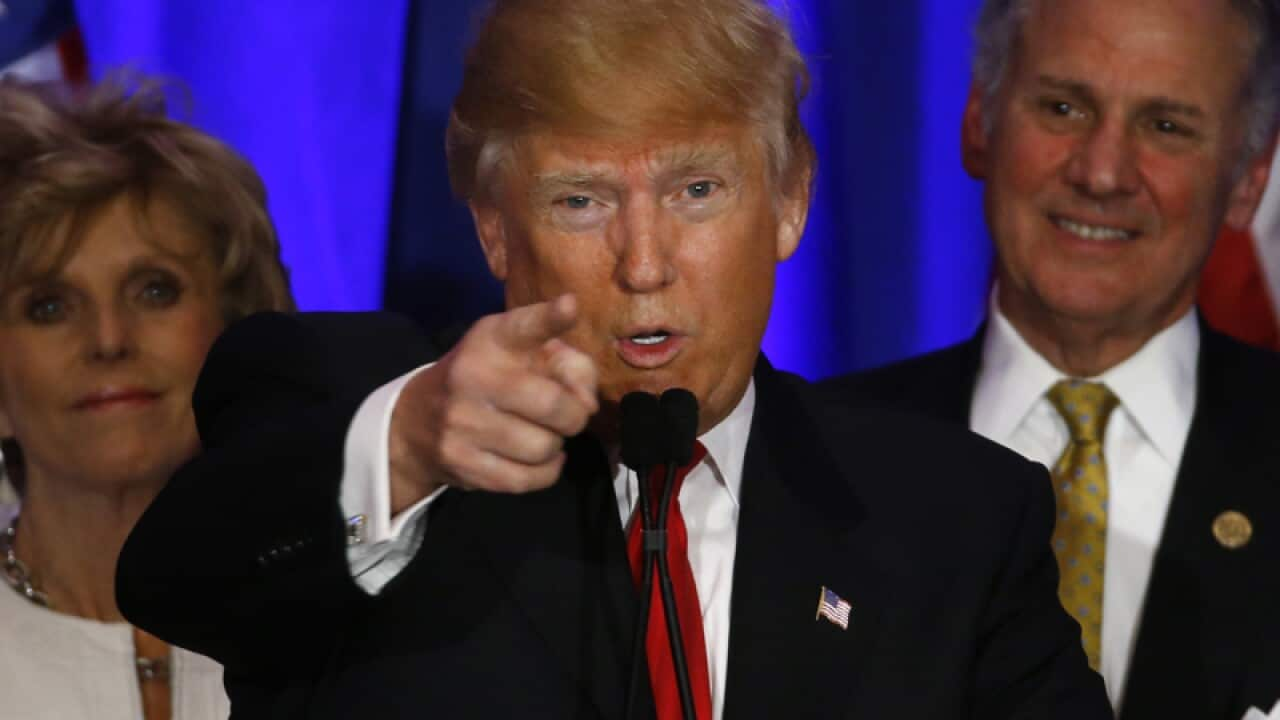Correct.
All of the talk on Tuesday night (and into Wednesday) of the establishment, finally, organizing a super PAC designed to take to down Trump overlooks this one uncomfortable fact: It's likely already too late. As of Wednesday morning, Trump has won 10 of the 15 total contests held so far. He has won in the Northeast (Vermont and Massachusetts). He has won in the South (Alabama and Tennessee). He has won in the mid-Atlantic (Virginia.) And he has won in the West (Nevada).
Trump now has 316 delegates to his name as compared to Ted Cruz at 226 and Marco Rubio at 106. (More on Cruz shortly.) While polling is scarce for the states that vote either over the weekend, next Tuesday or in 13 days' time on March 15, what data we do have suggests Trump starts those race with leads - often of the double-digit variety.
The only hope for the party is that John Kasich, the governor of Ohio, can linger long enough (and stay viable enough) to win his home state on March 15. Ditto Rubio, whose path to the nomination looks much hazier than it did 24 hours ago, in Florida. Keeping Ohio and Florida from Trump is so crucial because both are big delegate hauls - Ohio has 66 delegates, Florida has 99 - that award those delegates on a winner-take-all basis. Win the state, you win all of the delegates.
But, even if that dream scenario for the anti-Trump forces plays out - and it's far from clear it will particularly in Florida where Trump leads Rubio - here's what the party is left with: Trump with the most delegates -- albeit short of the 1,237 he needs to formally be the nominee - going into the party convention in Cleveland. (There is no plausible scenario I have figured out or been shown - short of total collapse by Trump, which, candidly, seems unlikely - where anyone other than the real estate billionaire goes to the convention with the delegate lead.)
For the sake of argument, let's assume the establishment can beat Trump in Ohio and Florida and that there is an open convention in mid-July in Cleveland. Here are the possible outcomes of that convention, ordered by the likelihood of them happening:
1. Trump wins a floor fight for the nomination, largely by emphasizing that he won the most states and the most delegates.
2. Cruz, who is likely to finish second behind Trump in the delegate chase, tries to form some sort of unity ticket - maybe with Rubio? - in order to build a coalition that can topple Trump.
3. The party establishment reasserts itself in a meaningful way, casting aside Trump and Cruz for Rubio, Mitt Romney or some other establishment-approved candidate.
Option one is regarded by the GOP establishment as a total nightmare.
Option two isn't much better. While establishment Republicans look at Trump with fear, they look at Cruz with loathing. Throwing over Trump for Cruz might not be the trouble it's worth in the calculations of many party insiders. And it's not just because they don't like the Texas senator (although they don't). Rather, there is a widespread belief within the Republican professional political class that Cruz would get swamped in a general election by Hillary Clinton while Trump's unorthodox appeal might make the race less predictable and, therefore, more winnable. Democrats, largely, agree.
For the record, most Democrats would much rather face Cruz than Trump
Option three is probably not worth considering because it is so outlandish. The idea that the party establishment, which has been neutered at every turn in this campaign, would somehow find a way to move the two candidates with the most delegates to the side and install either Rubio (likely the third leading delegate getter) or inject a Romney-type, who didn't even run in the primaries, seems remarkably far-fetched.
If it did somehow come to pass, it would virtually guarantee a third party candidacy by Trump, who has repeatedly hinted/threatened at that possibility over the last few weeks. And, such a candidacy - given the loyalty of Trump's supporters - would almost certainly doom the Republican nominee's chances of winning.
Republicans then are faced with an unpleasant series of choices. Trump is the most likely nominee - whether he wins the nomination via delegates in the primaries or at a contested convention. Do you continue to bash him - in the process handing Democrats all the on-camera denunciations they need to make 20 good negative ads? Or do you swallow hard and line up behind Trump a la Chris Christie?
If you choose to stand and fight against Trump, which certainly seems the direction the race is going, then you need to accept that even if you succeed in dethroning Trump (no sure thing) then the next most likely nominee is Cruz. And, if polling is anywhere near right, that means you likely lose the White House for the third straight time in November.
And that may be the best case scenario for establishment Republicans as of right now! Nominate Cruz and lose but, in their mind, preserve what the party stands for and, maybe, its majorities in the House and Senate.
That's where we are - whether the establishment acknowledges it or not. The math is the math. And it's too late to change it now.











